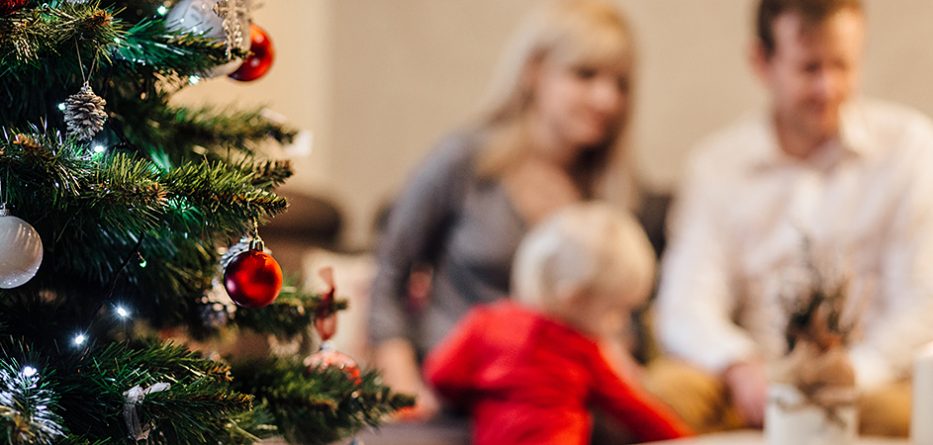The coronavirus lockdown actually offers us the chance to discover the truer and deep meaning of Christmas
The coronavirus spreads and multiplies rapidly, threatening everything that structures our rather peaceful life in the West.
It even attacks the calendar. After knocking out Easter, it now threatens our celebration of Christmas.
We hear one strange statement after another. The Irish Prime Minister wants to lock down now, so people can celebrate Christmas as a great family holiday.
The great desire of economists, we hear in the media, is to return to “normal” as quickly as possible before Christmas so people can do holiday shopping and save the economy.
The infectious disease expert at the Erasmus Hospital in Brussels warned on October 27 that our celebration of Christmas could pose a potential danger (meals, gatherings and hugs, gift-giving).
She even proposed postponing the Christmas and News Year’s celebrations to July and August. In any event, she said, we must celebrate “differently”.
It’s not all about turkey and champagne
We feel a tension between this desire to return to normal and the probability that this won’t happen. Perhaps we need to ask ourselves what this vision of a “back to normal” Christmas is all about.
If it means feasting on turkey and champagne, as a way to blot out all the anxiety and suffering of these days, then it is obscene.
Let’s dare to go further. It is also a misunderstanding of the mystery of Christmas itself, with “mystery” understood here in its original sense of unveiling the invisible.
What we see in the mystery is the absolute precariousness of a couple in Bethlehem 2,000 years ago, with no place to give birth to their child. Our Christmas cribs are undoubtedly very beautiful, even romantic, to correctly translate the drama at play here.
Shepherds, the very poor people on the margins of society at the time, come to this stable. The invisible is told by the colourful description of the angels. All the power of God’s love is manifested in the insignificance of this difficult, marginal event.
A new solidarity is made possible. This is the Christian faith, and this is the deep meaning of Christmas, celebrated every year since 325 A.D.
The struggles and care experienced in hospitals and nursing homes today are probably closer to the mystery of Christmas than logs and ornaments in comfortable living rooms. So, yes, we will have to celebrate a Christmas that is “not normal”.
Even the liturgies will be different. If the pope is alone in St. Peter’s Basilica on Christmas Eve, it won’t be in order that all Catholics will limit themselves to watching him on their TV screens.
Christmas on the streets, no one excluded
There will certainly be a carefully curtailed number of people in the churches, hampered by the necessary health standards. We will be far from the millions of occasional worshipers of “normal” years.
The issue lays elsewhere and so do the celebrations. The challenge is in our streets, in front of our doors!
The celebrations will be in families, small “domestic churches”, enriched as much as possible by the presence of isolated neighbours. People will celebrate around the crib, a symbol that is stronger than ever in this time of pandemic.
Let’s dare to dream: let’s go out and celebrate Christmas in our streets, without excluding anyone or remaining in our Catholic ghettos.
While we may not be able to gather with family from afar, let’s dare to have an unusual Christmas where neighbours celebrate at a healthy distance of 1.5 meters, offering each other a bowl of soup or a kebab, a pretzel or a cup of mulled wine.
Each household, whatever its size, will be able to light a symbolic hearth (candle or other) in the street, drawing chains of hopeful light in the heart of our daily environment, so sadly confined this year.
The faith of some (Christians and other believers) and the unbelief of others could be interwoven here in the care of the most isolated and vulnerable in our neighbourhoods, outlining for Christmas what the utopian horizon of living together could be.
For this Christmas 2020 that is not normal, the most authentic celebration will then be sharing in simplicity and showing concern for our loved ones and our neighbours.
Our Western societies have been given the opportunity to rediscover a meaning for Christmas that is different from the materialistic consumerism with which we have overloaded it.
This “not normal” will then be like a return to the authentic normality of Christmas. It will be a small, “not normal” step close to home, to express joy and breathe a great breath of fresh air and hope.
Arnaud Join-Lambert is a professor of practical theology and liturgy at the Catholic University of Louvain.
Reproduced with permission from La Croix International.








